Complete Solutions to Comprehension of chapter LAWS OF MOTION of Class 11 book with complete answers and questions
| Class 11 | PHYSICS |
| Chapter | LAWS OF MOTION |
| DC PANDEY | Comprehension |
| Number Of Questions | 9 |
| Academic Year | 2023-24 |
A man wants to slide down a block of mass `m` which is kept on a fixed inclined plane of inclination `30^(@)` as shown in the figure .Initially the block is not sliding .
To just start sliding the man pushed the block down the inclined with a force `F`. Now , the block starts accelerating. To move it downwards with conatant speed the man starts pulling the block with same force. Surface are such that ratio of maximum static friction to kinetic friction is `2` Now, answer the following questions.
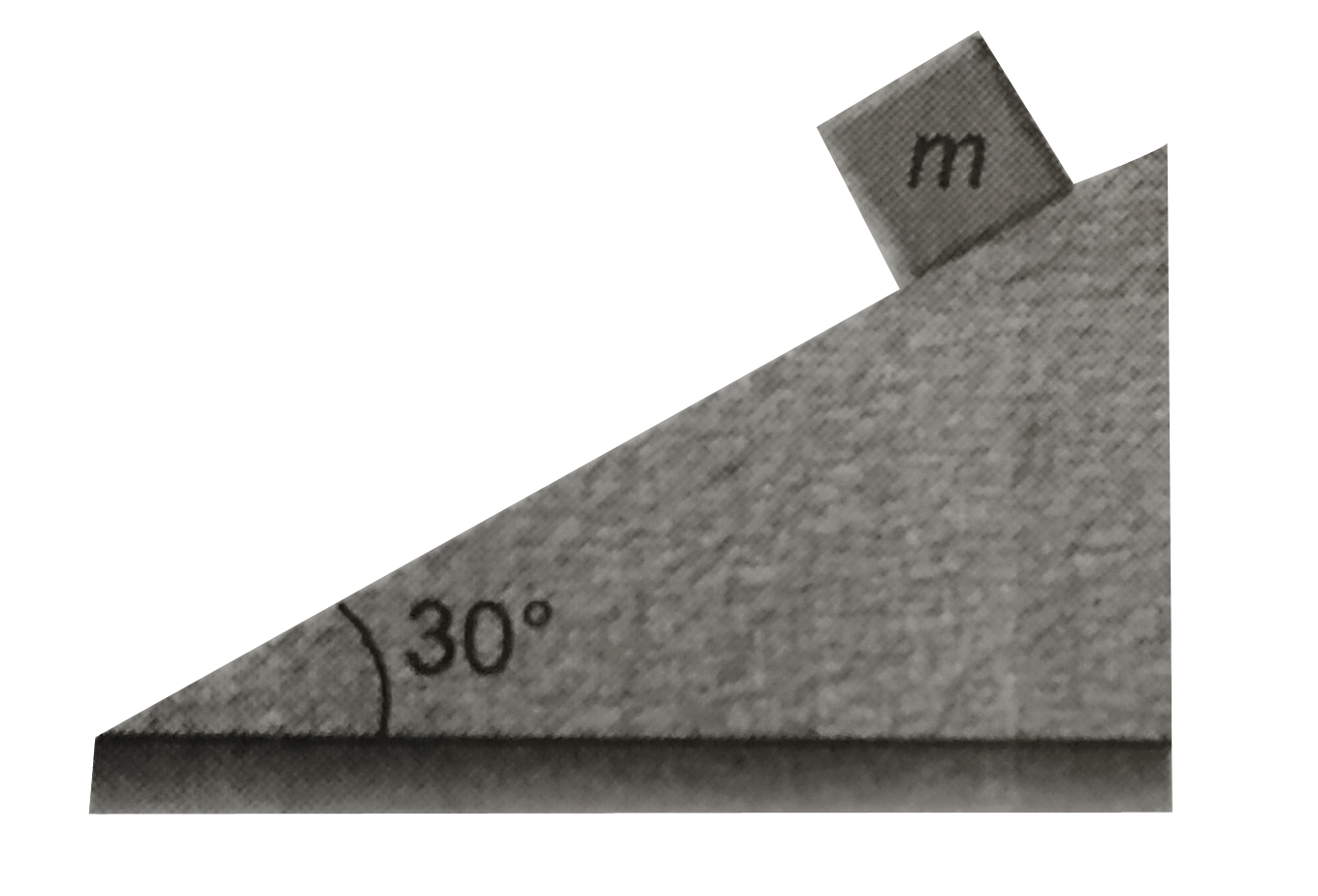
What is the value of `F`?05:35View SolutionA man wants to slide down a block of mass `m` which is kept on a fixed inclined plane of inclination `30^(@)` as shown in the figure .Initially the block is not sliding .
To just start sliding the man pushed the block down the inclined with a force `F`. Now , the block starts accelerating. To move it downwards with conatant speed the man starts pulling the block with same force. Surface are such that ratio of maximum static friction to kinetic friction is `2` Now, answer the following questions.
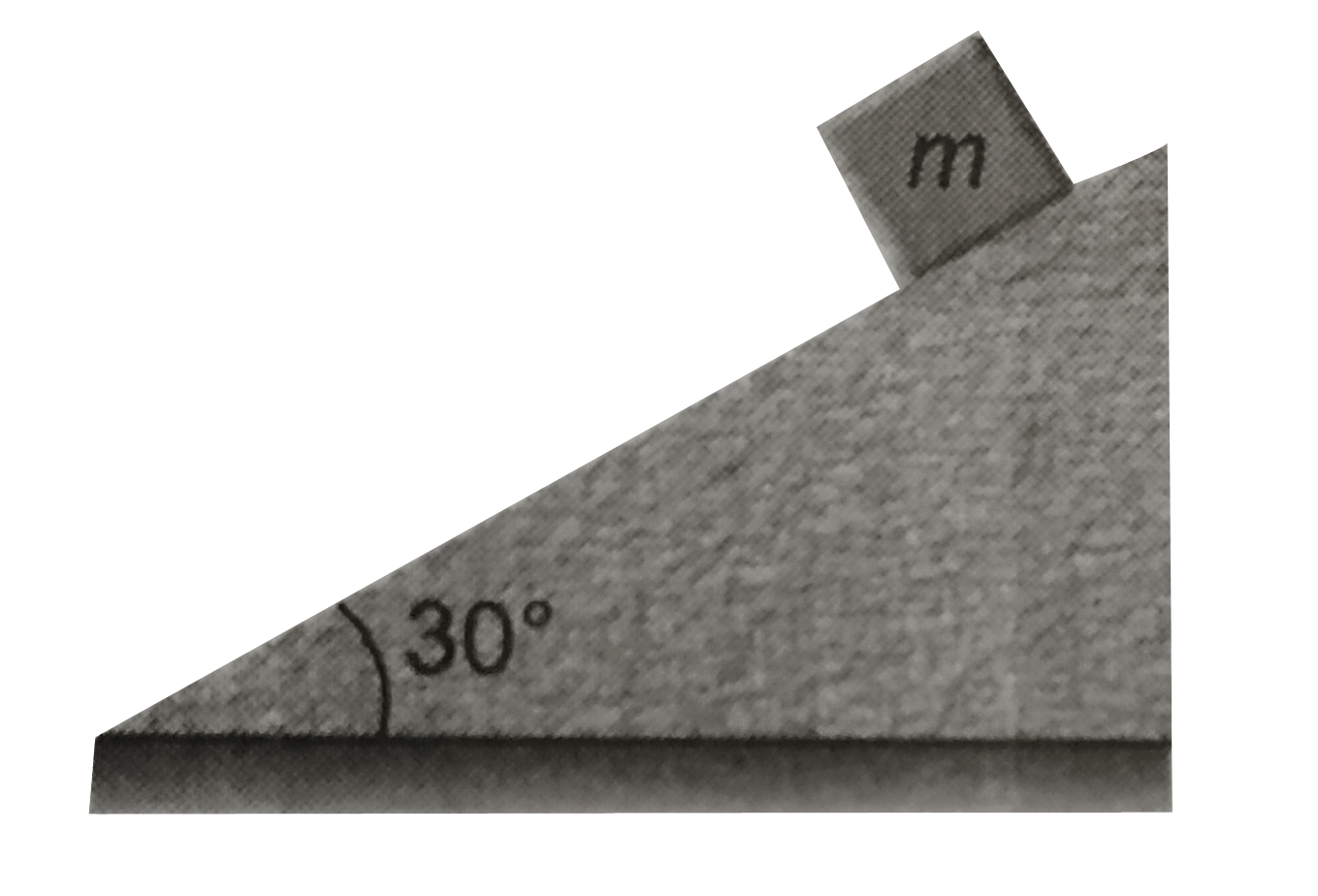
What is the value of `mu _(s)`, the coefficient of static friction?03:21View SolutionA man wants to slide down a block of mass `m` which is kept on a fixed inclined plane of inclination `30^(@)` as shown in the figure .Initially the block is not sliding .
To just start sliding the man pushed the block down the inclined with a force `F`. Now , the block starts accelerating. To move it downwards with conatant speed the man starts pulling the block with same force. Surface are such that ratio of maximum static friction to kinetic friction is `2` Now, answer the following questions.
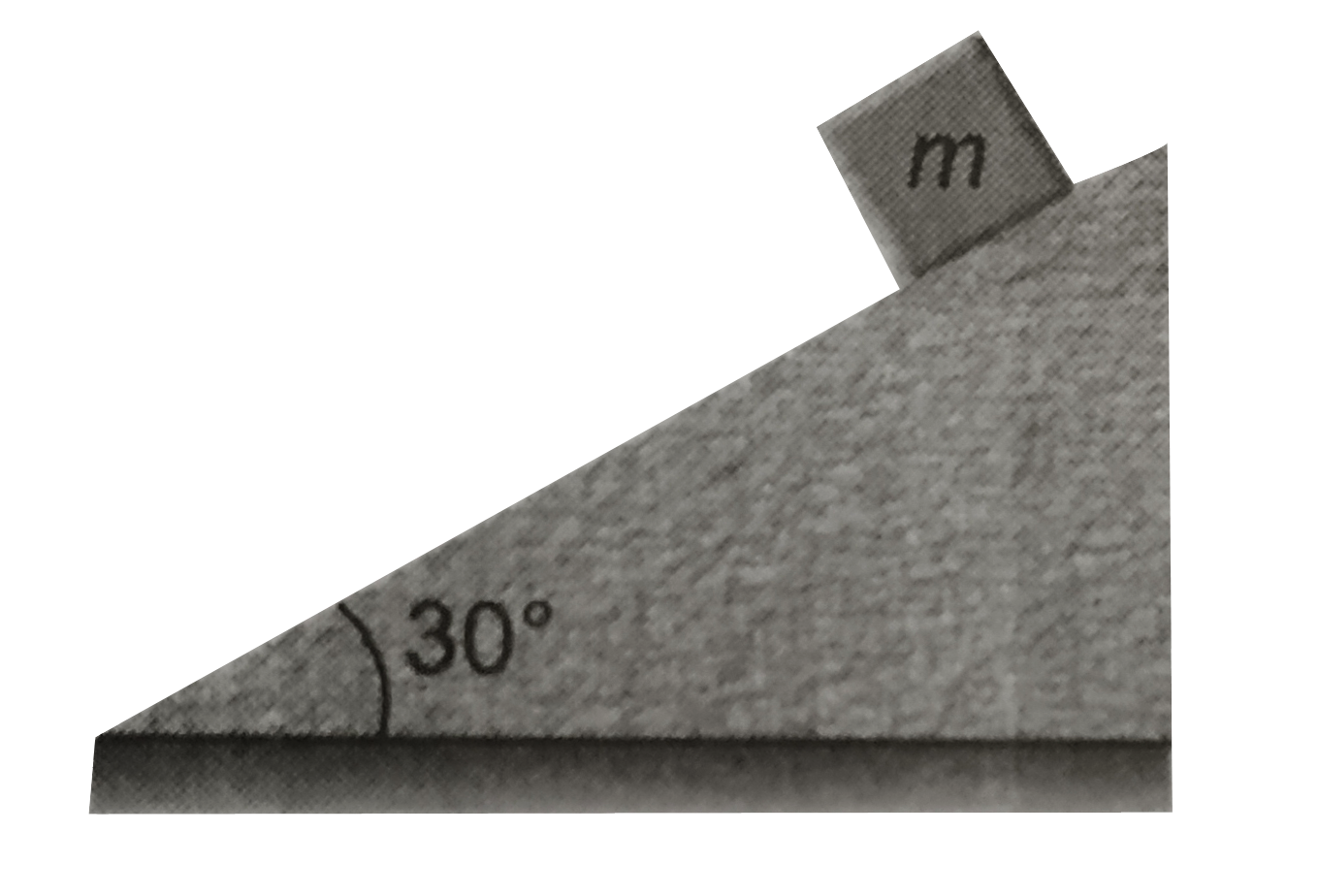
If the man continues pushing the block by force `F` its acceleration would be01:23View SolutionA man wants to slide down a block of mass `m` which is kept on a fixed inclined plane of inclination `30^(@)` as shown in the figure .Initially the block is not sliding .
To just start sliding the man pushed the block down the inclined with a force `F`. Now , the block starts accelerating. To move it downwards with conatant speed the man starts pulling the block with same force. Surface are such that ratio of maximum static friction to kinetic friction is `2` Now, answer the following questions.
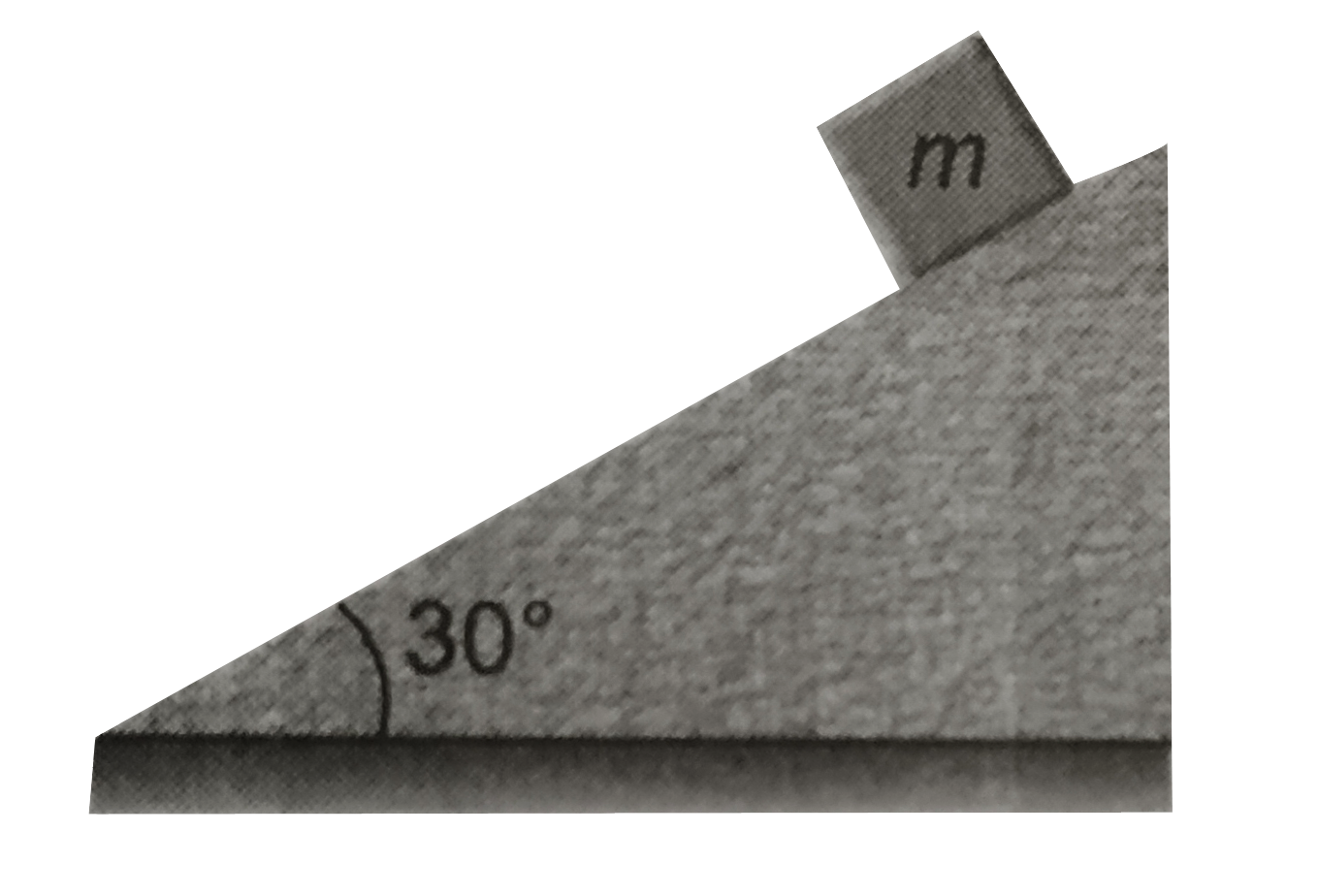
If the man wants to move the block up the inclined , what minimum force is required to start the motion?01:27View SolutionA man wants to slide down a block of mass `m` which is kept on a fixed inclined plane of inclination `30^(@)` as shown in the figure .Initially the block is not sliding .
To just start sliding the man pushed the block down the inclined with a force `F`. Now , the block starts accelerating. To move it downwards with conatant speed the man starts pulling the block with same force. Surface are such that ratio of maximum static friction to kinetic friction is `2` Now, answer the following questions.
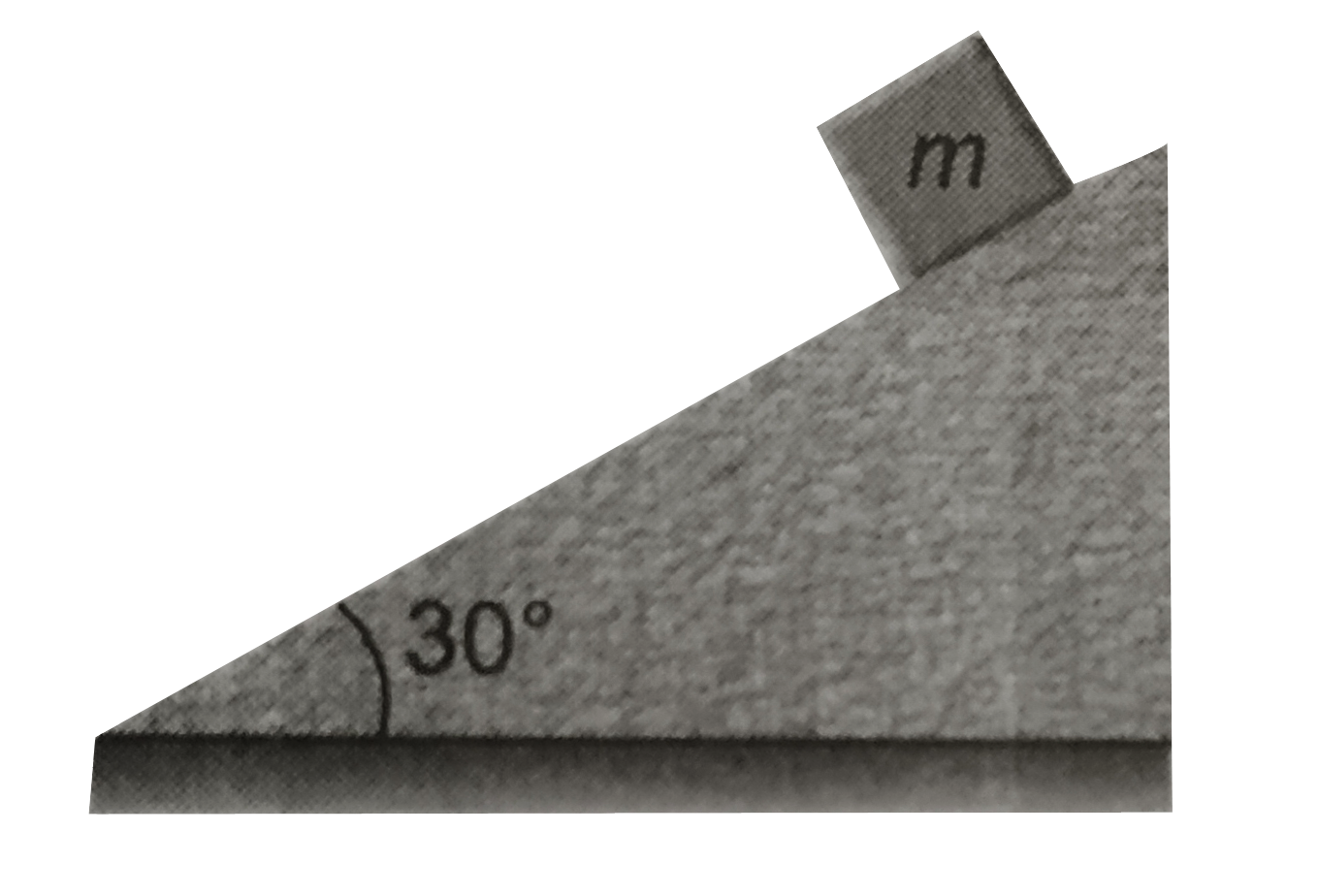
What minimum force is required to move it up the incline with constant speed?01:34View SolutionA lift a mass `1200 kg` is raised from rest by a cable with a tension `1350 kg f` . After same time the tension drops to `1000 kg f` and the lift comes to rest at a height of `25 m` above its intial point `(1 kg - f = 9.8 N)`
What is the height at which the tension changes ?05:02View SolutionA lift a mass `1200 kg` is raised from rest by a cable with a tension `1350 kg f` . After same time the tension drops to `1000 kg f` and the lift comes to rest at a height of `25 m` above its intial point `(1 kg - f = 9.8 N)`
What is the greatest speed of lift?01:44View SolutionBlock `A and B` shown in the figure are connected with a bar of negligible weight. `A and B` each has mass `170 kg` , the coefficient of friction between `A` and the plane is `0.2` and that between `B` and the plane is `0.4 (g = 10 ms_(-2))`

What is the total force of friction between the blocks and the plane?03:22View SolutionBlock `A and B` shown in the figure are connected with a bar of negligible weight. `A and B` each has mass `170 kg` , the coefficient of friction between `A` and the plane is `0.2` and that between `B` and the plane is `0.4 (g = 10 ms_(-2))`
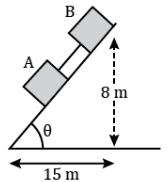
What is the force acting on the connecting bar?02:49View Solution
Comprehension questions and complete solutions for chapter LAWS OF MOTION of DC PANDEY PHYSICS (HINGLISH) of Class 11
All Exercises from DC PANDEY Class 11 PHYSICS LAWS OF MOTION
- Chapter exercises (A) Taking it together
- Check point 5.1
- Check point 5.2
- Check point 5.3
- Check point 5.4
- Comprehension
- Exercise 8.1
- Exercise 8.2
- Exercise 8.3
- Exercise 8.4
- Exercise 8.5
- Match the columns
- Medical entrances gallery
- Miscellaneous Examples
- Objective Question
- Single Correct
- Solved Examples
- Subjective Question
